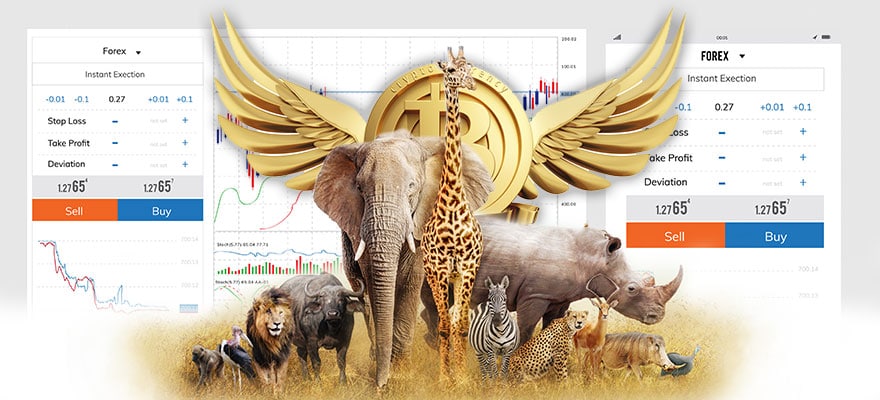Analysts have long tried to imply a strong connection between Bitcoin and gold as safe-haven investments in times of trouble.
In theory, this works, as both the crypto asset and the precious commodity are used as a macro hedge against inflation, and the devaluation of fiat currency and traditional equities in tricky markets.
But, the data is often unclear and as a whole, shows shifting sands in terms of direct correlation.
Take Kraken’s June 2020 report, for example. The crypto exchange, which has been celebrating its newly-found status as the first of its kind to win a US banking license, noted that Bitcoin’s connection to the price of

Maxim Bederov
gold had weakened as Volatility and trading volumes declined in the early part of the year.
Indeed, the crypto exchange noted on 8 September that Bitcoin’s rally to an intra-month high of $12,480 coincided with NASDAQ tech giant, Microstrategy buying $250m of the cryptocurrency.
Two weeks later, the mobile app firm doubled down, purchasing a further $175m of Bitcoin, taking its total holdings to 38,250 BTC. Founder Michael Saylor tweeted: “On September 14, 2020, MicroStrategy completed its acquisition of 16,796 additional bitcoins at an aggregate purchase price of $175 million. To date, we have purchased a total of 38,250 bitcoins at an aggregate purchase price of $425 million, inclusive of fees and expenses.”
That Saylor is an alumnus of noted US university MIT is no accident: this technical background may have attracted him to Bitcoin, but it is the asset’s performance this year which is the real sell.
Open a Trading Account Today With These Recommended Brokers
Bitcoin Boom
Bitcoin’s strong Spring 2020 recovery while gold and silver limped upwards and crude oil crashed? Manna from heaven for early adopters. Bloomberg figures confirm that Bitcoin is by far 2020’s best performing asset, up 66% and beating gold into second place.
Cryptocurrency does of course now boast an advantage that gold does not: yield.
With the growing adoption of DeFi, users can stake their cryptocurrency and receive a yield in return, ranging anywhere from 6.8% to over 12% for stablecoins. This is an incredible return when set against the 0.5% or less for long-term US Treasury bonds. And of course the 0% return from gold bullion bars stacked in a vault somewhere. A more popular way of buying gold is through price trackers like Exchange Traded Products, of course, but you get the idea.
DeFi as a sector is white-hot right now: the total value locked in smart contracts enacting these kinds of payment systems and loans now exceeds $11bn, up from $691m just nine months ago. Money is clearly flooding into the space.
So a more interesting question than the correlation between these stores of value now presents itself: which will reign supreme in the years to come?
With more major economies now backing negative interest rates this leaves investors basically paying banks to hold their cash, and with central banks amplifying and extending massive quantitative easing programs, capital flight away from bonds in the hunt for yield is likely to turn closer to Bitcoin than it is to gold.
Gold prices have now retraced from their record-breaking all-time highs north of $2,000 per ounce, settling around $1,800. But, analysts like Bank of America expect this lull is temporary, and in a scorching indictment of unfettered central bank money printing, suggested gold would hit $3,000 per ounce inside 18 months.
Saylor and Microstrategy? Perhaps they denote the crest of a wave of institutional investors moving away from simply buying gold as a safe haven, instead looking at the world’s largest cryptocurrency as their first port of call in stormy markets.
Late September 2020 analysis by British broadsheet, The Guardian flags up a weakening economic recovery in the UK, even before the onset of a much-feared ‘second wave’ of coronavirus infections.
Journalists at the paper describe their data-screening as a kind of early warning alarm of a double-dip recession, which itself could cripple large investors’ share portfolios and send pension funds running for safe havens once again.
2012 was the UK’s last double-dip and before that the catastrophe of the 1970s.
Never Lose Money
The issue for large money managers is this: how can they come out of an economic crisis in a reasonably rich position?
As legendary investor, Warren Buffett once noted, the absolute rule number one in investing is: Never lose money. Rule number two? Never forget rule number one.
The 90-year-old was left $23bn poorer from the value destruction of the 2008 financial crisis. His holding company, Berkshire Hathaway — market cap now over $500bn — even suffered the indignity of losing its AAA counterparty credit rating from S&P, making it incrementally more costly to borrow money.
This is the kind of financial disaster that pension funds and institutional investors fear.
It may indeed be what they face if they do not hedge properly against a long, slow global recovery made up of years of currency deflation, high unemployment and stock market value obliteration.
This is certainly what the IMF has told us will happen, repeatedly. Their World Economic Outlook has become bleaker the longer 2020 has run on. And indeed their next report is due out in the next couple of weeks. One suspects the news will not suddenly get better for global growth.
Bigger, Stronger, Faster
The answer to our query may lie in some serious recent regulatory developments from the world’s largest economies.
Nigeria boasts Africa’s largest GDP, of more of $400bn. Only eight of the continent’s 54 nations have people rich enough to make the Forbes Global Billionaires List. Nigeria is one of them.
In September its regulators opened the floodgates to clearly define crypto assets as securities. As we know, regulatory clarity leads to faster innovation and more investment.
Switzerland, a known store of value for the world’s richest in its aged private banking network, this month overhauled its legal code to set new standards for crypto trading.
A leaked report revealed the EU plans to put a Europe-wide cryptocurrency regulatory framework in place by 2024. In the US, 49 state banks agreed on common rules for dealing with cryptocurrency, and lawmakers put forward the first real comprehensive national crypto regime in the Digital Commodity Exchange Act of 2020.
More is coming. Bitcoin is moving faster than gold. I know where I would hedge right now, and it is not in the yellow metal.
Maxim Bederov is an investor and entrepreneur.






















